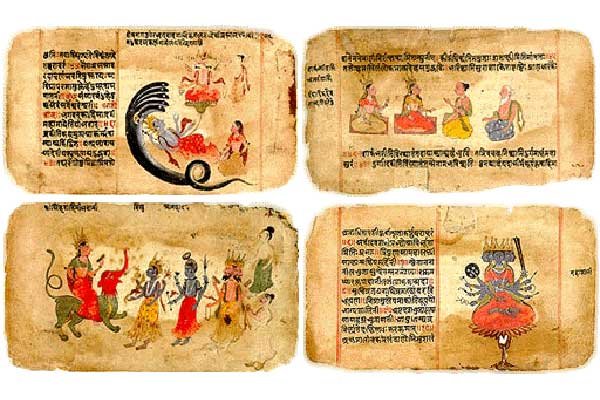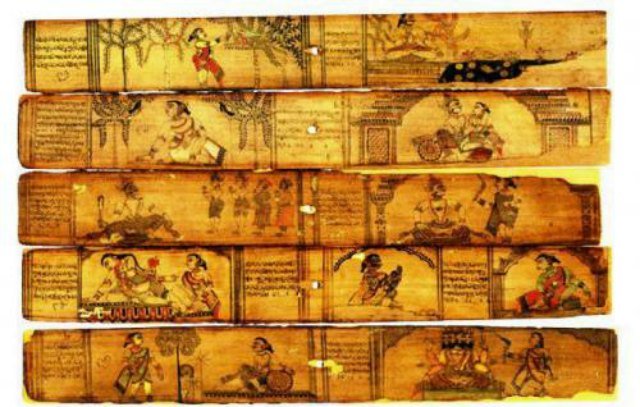A short introduction to Hinduism
Hinduism is a collective term applied to the many philosophical and religious traditions native to India. Hinduism has neither a specific moment of origin nor a specific founder. Rather, the tradition understands itself to be timeless, having always existed. Indeed, its collection of sacred texts is known, as a whole, as Sanatana Dharma, "The Eternal Teaching." It is thus a complex tradition that encompasses numerous interrelated religious doctrines and practices that have some common characteristics but which lack any unified system of beliefs and practices. Hinduism encompasses a number of major sects, as well as countless subsects with local or regional variations. On one level, it is possible to view these sects as distinct religious traditions, with often very specific theologies and ritual traditions; on another level, however, they often understand themselves to be different means to reach a common end. The Hindu worldview is grounded in the doctrines of samsara (the cycle of rebirth) and karma (the universal law of cause and effect), and fundamentally holds that one's actions (including one's thoughts) directly determine one's life, both one's current life and one's future lives. Many, but not all, Hindus hold that the cosmos is populated by numerous deities and spiritual beings — gods and goddesses, or devas — who actively influence the world and who interact with humans. The tradition is typically divided into four major sects: Shaiva (devotees of the god Shiva), Vaishnava (devotees of the god Vishnu), Shakta (devotees of the goddess), and Smarta (those who understand the ultimate form of the divine to be abstract and all encompassing)

As we continue on in learning the history of Hinduism, it would be interesting to note some of the Hindu scriptures
- The oldest form of Hindu scriptures, Veda, means wisdom or knowledge, and contains hymns, prayers and ritual texts composed during a period of a thousand years.

- The Upanishads are a collection of secret teachings including mystical ideas about man and the universe. The word, Brahman, comes into focus within this group, which is the basis of reality, and atman, which is the self or soul.

- The Ramayana, which is one of two major tales of India. The work consists of 24,000 couplets based on the life of Rama, a righteous king who was an incarnation of the God Vishnu.

- The Mahabharata is the second epic and is the story of the deeds of the Aryan clans. It is composed of 100,000 verses written over a 800 year period. Contained within this work is a classic called the Bhagavad Gita, or the "Song of the Blessed Lord." It is one of the most sacred books of the Hindus and the most read of all Indian works in the entire world. The story is centered on man's duty, which, if carried out, will bring nothing but sorrow. The significance of this story is based on Hindu belief of bhatki, (devotion to a particular god as a means of salvation). These two stories have become ideals for the people of India in terms of moral and social behavior.

- The Puranas are an important source for the understanding of Hinduism, and include legends of gods, goddesses, demons, and ancestors describing pilgrimages and rituals to demonstrate the importance of bhatki, caste and dharma (basic principles of the cosmos or an ancient sage in Hindu mythology)

Please upvote , comment, follow and resteem
Congratulations @arkaprava! You have completed some achievement on Steemit and have been rewarded with new badge(s) :
Click on any badge to view your own Board of Honor on SteemitBoard.
For more information about SteemitBoard, click here
If you no longer want to receive notifications, reply to this comment with the word
STOPCongratulations @arkaprava! You have completed some achievement on Steemit and have been rewarded with new badge(s) :
Click on any badge to view your own Board of Honor on SteemitBoard.
For more information about SteemitBoard, click here
If you no longer want to receive notifications, reply to this comment with the word
STOP